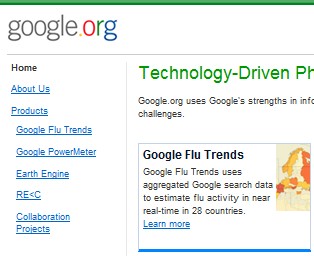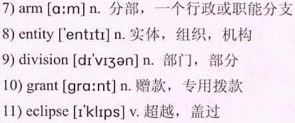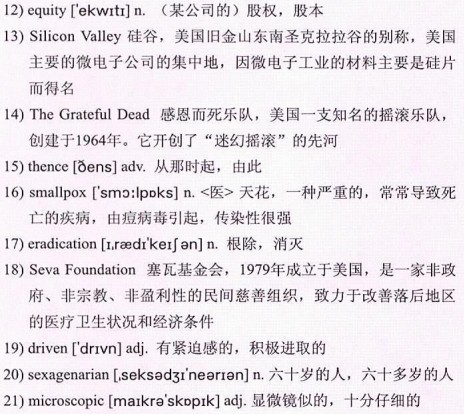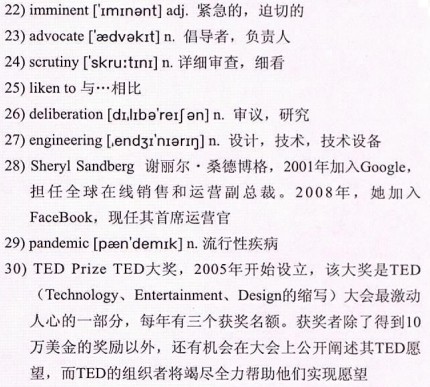谷歌:企业参与慈善的先锋 Google`s 1)Guru of Giving
 WHAT does a moral person do, given all the problems and suffering in the world? How do you focus?” Larry Brilliant illustrates how difficult this is by recalling a friend’s struggle to decide how best to allocate a few 2)rupees among the beggars waiting to die in the 3)Hindu sacred city of 4)Benares, in India. Such a place could hardly be more different from Google’s headquarters in5)Mountain View, California—with its population of 6)geeky 20-somethings, free food, volleyball courts and fake dinosaur—where Dr. Brilliant and his 40-strong team have at last agreed on a strategy for Google.org, the Internet giant’s philanthropic 7)arm, which Dr Brilliant leads.
WHAT does a moral person do, given all the problems and suffering in the world? How do you focus?” Larry Brilliant illustrates how difficult this is by recalling a friend’s struggle to decide how best to allocate a few 2)rupees among the beggars waiting to die in the 3)Hindu sacred city of 4)Benares, in India. Such a place could hardly be more different from Google’s headquarters in5)Mountain View, California—with its population of 6)geeky 20-somethings, free food, volleyball courts and fake dinosaur—where Dr. Brilliant and his 40-strong team have at last agreed on a strategy for Google.org, the Internet giant’s philanthropic 7)arm, which Dr Brilliant leads.
As well as adopting the informal company motto, “Don’t be evil”, the Internet search firm’s co-founders, Sergey Brin and Larry Page, decided to commit Google to engage in serious philanthropy. Innovative as ever, they created a new sort of philanthropic 8)entity, a 9)division of the company that could pursue its mission through both for-profit investing and making charitable 10)grants. This, they hoped, would one day “11)eclipse Google itself in overall world impact by ambitiously applying innovation and significant resources to the largest of the world’s problems.” It would be funded with 1% of the firm’s 12)equity, annual profits and employees’ time.
In February 2006, after a lengthy search, Dr.Brilliant was appointed to run Google.org. What attracted his new employers was his unique record of success, both in running 13)Silicon Valley tech firms and in implementing large-scale solutions to big social problems. In the 1970s, an appearance in a film featuring 14)The Grateful Dead had taken him to India, and 15)thence to a job with the World Health Organisation, where he helped to lead its successful 16)smallpox-17)eradication programme. Later he created the 18)Seva Foundation, which has prevented an estimated 3 million people in nine developing countries from going blind. As a businessman, he ran two public firms and, in 1985, co-founded The Well, a pioneering online service.
Though he has taken nearly two years to produce a strategy for Google.org, Dr. Brilliant has not been taking things easy. But he is a 19)driven man, travelling widely and seeking advice from hundreds of people, pushing himself harder than friends say is wise for a 20)sexagenarian. When he arrived at Google.org he found extraordinarily high expectations, a blank sheet of paper to fill with a strategy, and “21)microscopic attention” from outside on what it was doing.
看到世界上有这么多问题和苦难,一个有道德的人该怎么办呢?该如何看待呢?”通过回忆一个朋友的例子,拉里·布里恩阐明了做慈善是一件多么困难的事。当时,那位朋友在印度教圣城贝拿勒斯看到许多濒临死亡的乞丐,为了将手中的卢比以最佳的分配方式分给这些人,他绞尽了脑汁。那样的地方跟谷歌在加州山景城的总部比起来,其实区别并不大。谷歌总部里都是些20多岁的计算机狂人,有着免费食物、排球场,还有恐龙模型。在那里,布里恩博士以及他率领的由40人组成的强大团队最终就互联网巨头谷歌的慈善分支Google.org的发展战略达成了一致。
同时,沿袭公司“不做坏事”的非官方信条,谷歌的两位创始人谢尔盖·布林和拉里·佩奇决定让谷歌真真正正地投入到慈善事业中。秉承创新的传统,他们建立了一种新的慈善实体Google.org。作为公司的分支,这个实体将通过赢利性投资和慈善性捐资来实现其使命。他们希望,“通过雄心勃勃地投入创意及大量资源去解决世界上最大的问题,这个慈善实体在全球范围内的影响力终有一天将会超过谷歌本身”。谷歌将对Google.org投入公司总股本的1%,每年利润的1%和员工工时的1%。
经过长时间的搜寻,2006年2月,布里恩博士被任命为Google.org的负责人。布里恩博士吸引新东家的地方在于,他同时具有运作硅谷高科技公司和执行大规模方案解决社会严重问题的成功纪录。20世纪70年代,布里恩博士在一部有关“感恩而死乐队”的影片中露了个脸,这让他去了印度。自那以后,他就开始为世界卫生组织工作,负责一个根除天花病症的项目并取得了成功。随后,他又创立了塞瓦基金会。在这个基金会的帮助下,来自九个发展中国家的约300万人得以免遭失明之苦。作为一个商业活动家,他管理过两家公营机构,并且在1985年与他人共同成立了开拓性的在线服务公司——The Well。
尽管花了将近两年时间为Google.org制定战略,布里恩博士并没有把事情想得那么简单。但是,他是一个积极进取的人,他四处游历、向成百上千的人寻求建议。他给自己定下的繁重任务甚至超过了朋友都认为一个花甲老人所能承受的工作量。当他来到Google.org的时候,他发现谷歌对他的期望相当高,等待他的还有一张填写发展战略的白纸,以及外界对于组织内部进展状况的“显微镜似的关注”。
Within a short time, Google.org had compiled a list of over 1,000 ideas. These were reduced to 11, focused on the world’s “biggest, most 22)imminent, least well resourced problems”. Each of the 11 was allocated to a different member of the Google.org team, who acted as its 23)advocate in a process of further 24)scrutiny and selection that Dr. Brilliant 25)likens to being in court. In these 26)deliberations, the focus was on what Google specifically had to offer in each area, given its technological and27)engineering capabilities, mastery of information, entrepreneurial culture and global reach.
In broad terms, the outcome is not terribly surprising. Google.org will pursue five “core initiatives” in three areas: fighting climate change (a particular obsession of Brin and Page); economic development (a passion of 28)Sheryl Sandberg, the unseen driving force behind the creation of Google.org); and building an early-warning system for 29)pandemics and other disasters—something Dr. Brilliant wished for when he won the 2006 30)TED Prize, which first brought him to Google’s attention.
Accordingly, Google.org has made a $5m grant to InSTEDD, a non-governmental organization that is building a rapid-reporting platform to connect people on the ground with those monitoring pandemics. It hopes to raise the quality of public services in poor countries by improving the flow of information both to those who run them and to those they serve. It has big ambitions to help small and medium enterprises in developing countries. It is investing in the development of a 31)plug-in electric car. And it has launched a project called RE. Each of these initiatives is deliberately high-risk and high-return, says Dr. Brilliant. If the 32)pilots go well, Google.org plans to 33)scale up fast; at the moment it is spending much less than Brin and Page promised.
In the 1960s Dr. Brilliant bought into the anti-corporate 34)Zeitgeist, but “I must have been wrong,” he says. Now he believes that companies can play a big part in solving the world’s problems. Is Google.org, with its innovative mix of for-profit and non-profit strategies and political advocacy, within a corporate structure that denies it some of the tax and regulatory advantages of a traditional foundation, a new model for how a big firm should engage with society? “Let’s see how we do first,” says Dr. Brilliant, showing why he has a reputation for being wise.
在很短的时间内,Google.org就列出了一张包含上千个点子的清单。这些点子后来被缩减到11个,主要聚焦于世界上“最大、最紧迫、最缺乏资源的问题”。11个课题逐一分配给Google.org的不同成员,这些成员将作为负责人对这些课题进行更深入的考察和筛选,布里恩博士把此过程比作是严谨的“法庭审讯”。在这些研究中,讨论的重点是基于其自身的科学技术实力、信息掌握、创业型文化和全球覆盖面,谷歌能具体地为每个领域提供些什么。
在广义层面上,结果并不令人吃惊。Google.org将在三个领域推行五项“核心倡议计划”:对抗气候变化(谷歌的两位创始人对这个议题情有独钟);经济发展(这是Google.org的幕后英雄谢丽尔·桑德博格所钟情的课题);构建针对流行病及其他灾难的预警系统——这是布里恩博士在2006年的TED大会上发表得奖感言时所表述的想法,而正是那次获奖让他受到谷歌的关注。
相应地,Google.org已经向InSTEDD捐赠了500万美元。InSTEDD是一家非政府机构,主要致力于建立连接地面人群与流行病监测员的快速报告平台。他们希望能通过改善系统运作者和使用者之间的信息流动,从而提高贫穷国家公共服务的质量。Google.org致力于帮助发展中国家的中小企业。它向插电式电动汽车的开发项目投入资金,此外,还启动了一个名为RE的项目。布里恩博士说,这些计划个个都经过精心计算,是高风险高回报的。如果初期进展顺利,Google.org就会计划迅速扩大规模。就目前而言,各项目的资金投入情况仍然比谷歌两位创始人所承诺的要少很多。
20世纪60年代,布里恩博士曾投身于反对企业的思潮,但是他承认:“我当时肯定是做错了。”现在,他相信,企业能够在解决世界问题上扮演重要角色。Google.org创造性地把盈利性、非盈利性战略以及公益立场融为一体,但其企业架构又令其无法像一般的慈善基金组织那样享受税收和法规方面的一些优惠政策,在这样的前提下,Google.org 会成为大公司承担社会责任的新模式吗?“先看看我们做得怎样吧。”布里恩博士说。难怪他会拥有“智者”的美誉。






